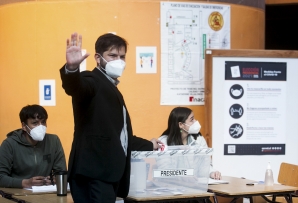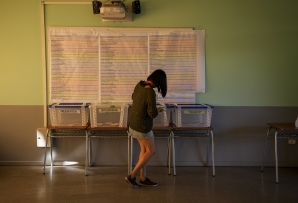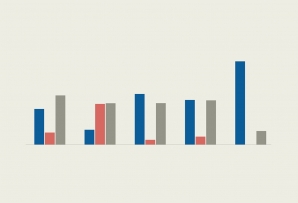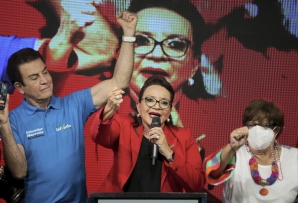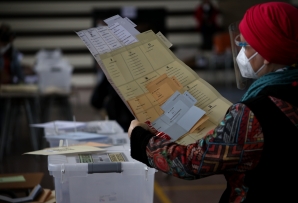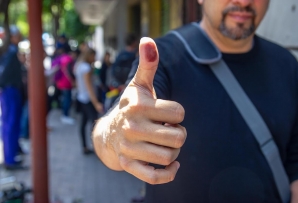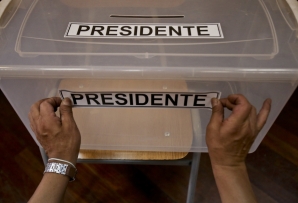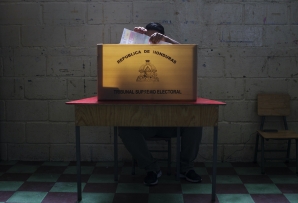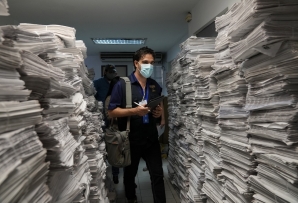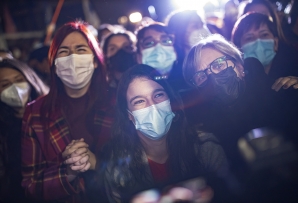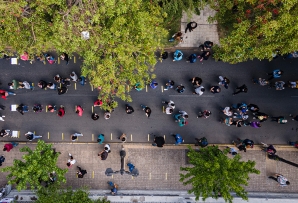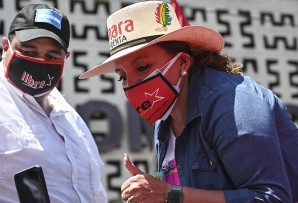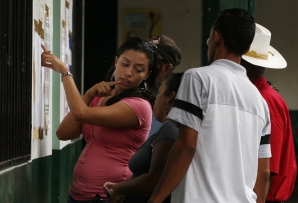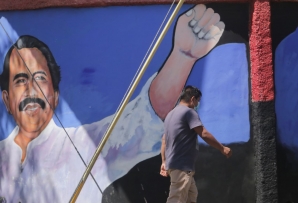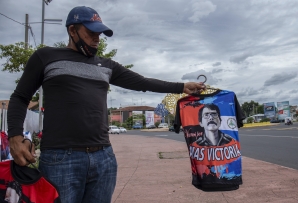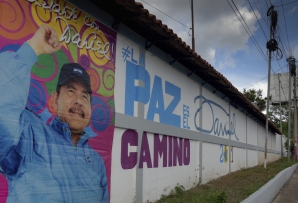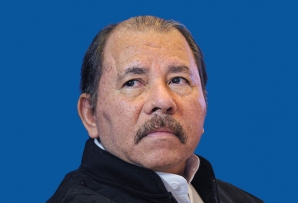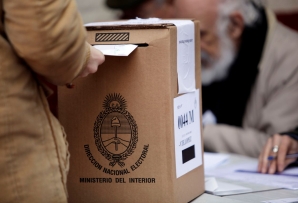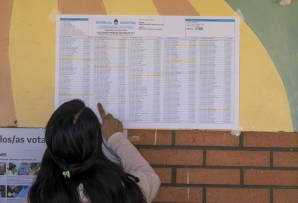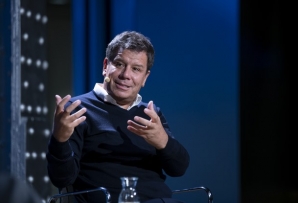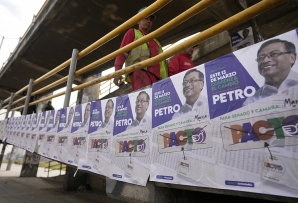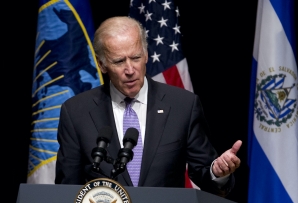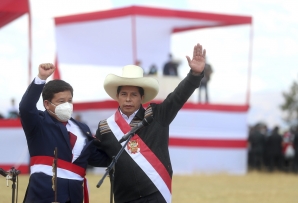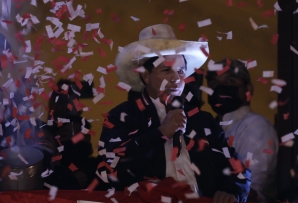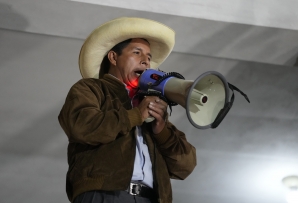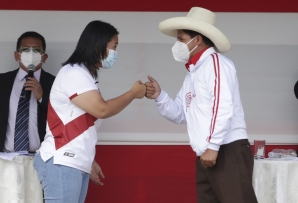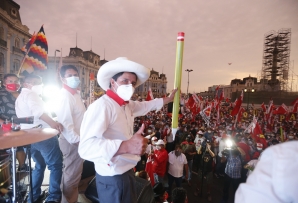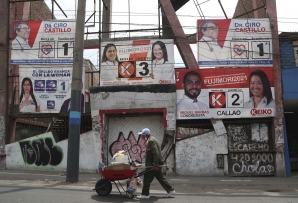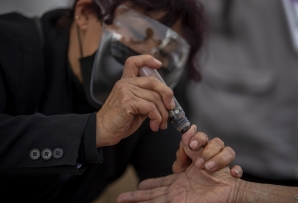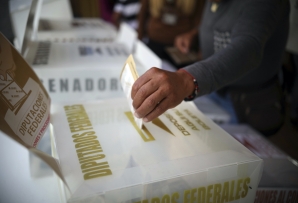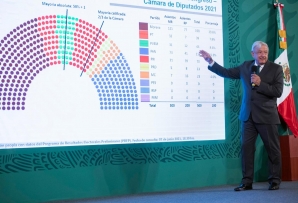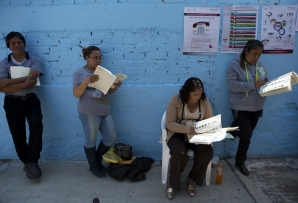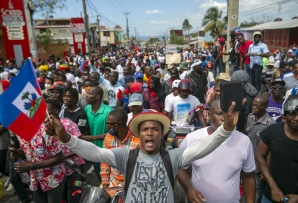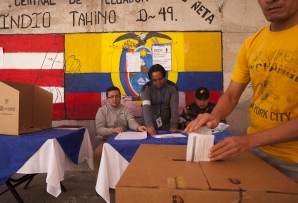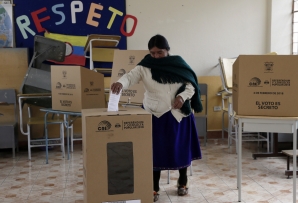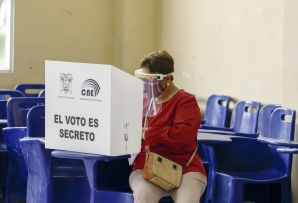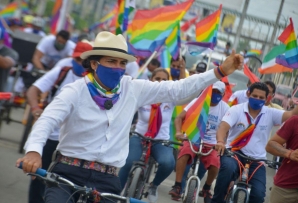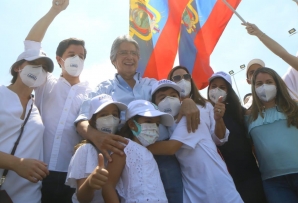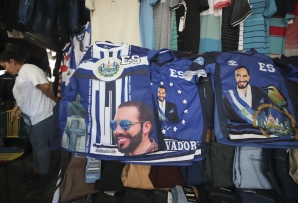A GUIDE TO
In 2021, ten countries in Latin America hold elections—five of them presidential contests—while reeling from the pandemic's devastating impact. AS/COA tracks these elections through articles, poll updates, podcasts, and more.
Ecuador: February 7, April 11 presidential runoff
El Salvador: February 28
Chile: May 15–16 Constitutional Convention delegates, local, and gubernatorial elections; June 13 gubernatorial runoffs; July 18 presidential primaries; November 21 general elections; December 19 presidential runoff
Peru: April 11 general elections, June 6 presidential runoff
Mexico: June 6 midterms, August 1 corruption referendum
Argentina: September 12 primaries, November 14 legislative elections
Paraguay: October 10 local elections
Nicaragua: November 7 presidential elections
Venezuela: November 21 regional and local elections
Honduras: November 28 presidential elections
Share
“This election was a testament to the strength of Chilean democracy,” says AS/COA’s Holly K. Sonneland, who reflects on the smooth electoral process and ways the results reflected polling.
CNN Chile host and La Tercera columnist Paula Escobar Chavarría covers the parallels between Chile’s 2021 presidential race and its 1988 referendum.
See how the competition between Gabriel Boric and José Antonio Kast is shaping up ahead of the December 19 second round.
The two polar-opposite candidates will try to woo voters from the center ahead of the December 19 second-round vote.
The democratic socialist and former first lady will end to 12 years of National Party rule in the country.
AS/COA Online previews the November 2021 presidential elections in Chile, Honduras, and Nicaragua, along with legislative midterms in Argentina.
We look at top candidates’ stances on immigration, inflation, pensions, and more.
Nine Latin American countries hold elections this year, with five—Chile, Ecuador, Honduras, Nicaragua, and Peru—selecting presidents.
See how the competition between presidential hopefuls is taking shape ahead of the November 21 elections.
Ahead of the November 28 vote, AS/COA Online monitors the competition between Nasry Asfura, Xiomara Castro, and Yani Rosenthal.
“You can’t force people to vote when they themselves are convinced that the system is completely rigged,” says the AS/COA Venezuela Working Group head of the November 21 vote.
Ahead of the November 21 first round, AS/COA Online profiles the backgrounds and platforms of Gabriel Boric and Yasna Provoste on the left, and Sebastián Sichel and José Antonio Kast on the right.
Several presidential hopefuls have already thrown their hats in the ring for Chile’s November election.
Two young newcomers—Gabriel Boric on the left and Sebastián Sichel on the right—beat out frontrunners to lead their respective coalitions. The presidential vote takes place in November.
Adolfo Ibáñez University’s Isabel Aninat spells out what’s at stake in each vote, from the selection of constitutional delegates to the country’s next president.
The former first lady and democratic socialist could become Honduras’ first female president. That may be the easy part.
Criminal investigations and fears of fraud loom over this year’s presidential election.
International Crisis Group’s Tiziano Breda covers the two elections while El Milenio’s Juan Pablo Sabillón covers efforts to combat young Honduran voters’ apathy.
By denying the Ortega regime of the legitimacy it seeks, Washington and the international community can discourage other budding dictators, writes AS/COA's Eric Farnsworth for Univision.
“It’s like a slow-motion train wreck,” says the AS/COA vice president of the November 7 vote, widely considered a sham.
With most of the opposition jailed, Daniel Ortega is poised to tighten his grip on power in the November 7 vote.
Reforms and a fractured opposition only make it easier for Daniel Ortega to secure a fifth term as president in November.
Although a presidential election is scheduled for November 7 in Nicaragua, it is unlikely to be free or fair.
With signs the opposition coalition is poised to make gains, the special advisor to AS/COA analyzes what the November 14 legislative elections mean for the country's future political course.
Bloomberg's Carolina Millán on the political and economic fallout of an election still a month away.
The special advisor to AS/COA covers the context for the governing coalition’s losses in legislative primaries and what the outcome means for November midterms.
In tough times, Facundo Manes is signaling a bigger role for himself in Argentine society and politics.
Will the country change political course? Ahead of the May 29 first round, we look at the top presidential candidates.
El Faro’s Nelson Rauda covers the Biden administration’s approach to El Salvador, Honduras, and Guatemala ahead of 2021 elections in two of those countries.
A year out from the presidential vote, IDEIA Big Data’s Mauricio Moura covers how the president’s approval, Covid-19, and technology are shaping what’s to come.
Several of the new Peruvian president’s picks seem designed to provoke controversy.
Journalist Mitra Taj and legal expert Alonso Gurmendi discuss the bumpy road ahead for Peru’s new president.
A vast, ancient gap in living standards helps explain the presidential frontrunner’s appeal.
With nearly all votes counted, the first-time presidential candidate is ahead of rival Keiko Fujimori by less than half a percentage point.
See how the race between Pedro Castillo and Keiko Fujimori is shaping up ahead of the June 6 vote.
Given the polarized race, this bicentennial election will be anything but a celebration. AS/COA Online previews the platforms of Pedro Castillo and Keiko Fujimori.
The electorate’s apathy is giving way to antipathy as two of the most polarizing candidates move on to the June 6 runoff.
The April 11 elections give wary voters a chance to pick new leaders amid both the pandemic and political tumult.
After last year's impeachment turmoil, Peruvians will likely choose one of these candidates as their next leader.
On August 1, voters will voice whether past leaders' crimes should be investigated and punished. There are catches.
President Andrés Manuel López Obrador’s political party is vying to cement its legacy on June 6. AS/COA Online explore coalitions and voter concerns.
The AS/COA Online editor-in-chief shares insights on the surprising outcomes of the largest elections in the country's history.
Can President Andrés Manuel López Obrador’s governing coalition keep its supermajority in the Chamber of Deputies? El Financiero’s Alejandro Moreno tells us what the polls indicate.
See Andrés Manuel López Obrador’s approval levels at the end of his six-year term.
President Jovenel Moïse’s constitutional referendum stalled, but he’s found other ways to consolidate political power amid calls for his resignation.
Amid coronavirus and economic concerns, Ecuadorans pick a new legislature and hold a first-round presidential vote February 7.
In both countries, which hold elections on April 11, voters are divided and largely unenthused by traditional politics—but have few alternatives.
Ecuadorians will face starkly different options when they vote for president in February.
Familiar faces loom over a crowded field of presidential hopefuls.
In the April 11 second-round vote, Andrés Arauz faces Guillermo Lasso. Youth, women, and disaffected voters may play decisive roles.
With an environmentalist message, Yaku Pérez has become the dark horse candidate in Ecuador's presidential race.
The president-elect has pitched a business-friendly economic vision but will have to work with a divided legislature.
In 2019, Nayib Bukele upended Salvadoran politics, winning the presidency with his populist message. Now, a midterm gives him the chance to consolidate power.







